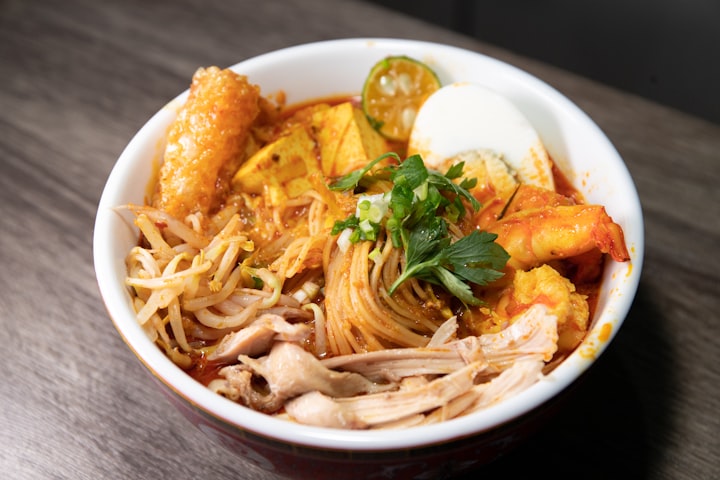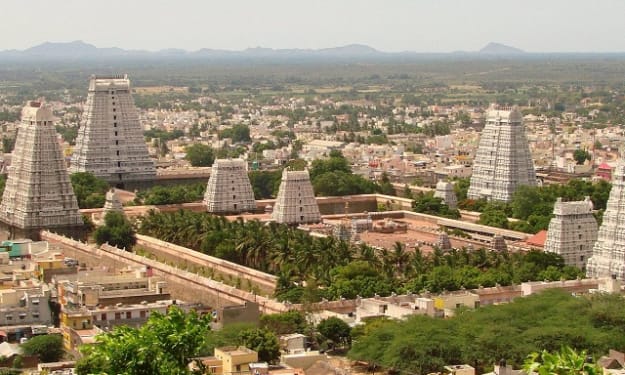
Malaysian food represents a melting pot of diverse cultures, traditions, and flavors, reflecting the country's vibrant multicultural society. From aromatic spices to succulent meats, Malaysian cuisine tantalizes the taste buds with its rich and varied offerings. Let's delve deeper into the fascinating world of Malaysian food.
Diverse Influences on Malaysian Cuisine
Malaysian cuisine is a tapestry woven from various cultural threads, including Malay, Chinese, Indian, and indigenous influences. Each community has contributed its unique ingredients, cooking techniques, and flavors to the culinary landscape of Malaysia.
Malay Influence
Malay cuisine forms the foundation of Malaysian food, characterized by its use of aromatic herbs, spices, and coconut milk. Staple dishes such as Nasi Lemak, a fragrant rice dish cooked in coconut milk, and Rendang, a flavorful meat curry, showcase the richness of Malay flavors.
Chinese Influence
Chinese immigrants have played a significant role in shaping Malaysian cuisine, introducing ingredients like noodles, soy sauce, and tofu. Popular dishes like Char Kway Teow, a stir-fried noodle dish, and Dim Sum reflect the influence of Chinese culinary traditions on Malaysian cooking.
Indian Influence
The Indian community in Malaysia has contributed spicy curries, roti breads, and tandoori dishes to the country's culinary repertoire. Roti Canai, a flaky flatbread served with curry sauce, and Banana Leaf Rice, a South Indian delicacy, highlight the vibrant flavors of Indian cuisine in Malaysia.
Indigenous Tribes' Influence
Indigenous tribes in Malaysia, such as the Orang Asli, have also left their mark on Malaysian food, incorporating wild herbs, jungle produce, and freshwater fish into traditional dishes. Pucuk Ubi Masak Lemak, a dish made with cassava leaves and coconut milk, is a prime example of indigenous culinary heritage.
Popular Malaysian Dishes
Among the myriad of Malaysian dishes, several stand out as iconic representations of the country's culinary prowess.
Nasi Lemak
Nasi Lemak, often hailed as the national dish of Malaysia, features fragrant rice cooked in coconut milk, served with anchovies, peanuts, cucumber, and spicy sambal.
Roti Canai
Roti Canai, a versatile flatbread, is enjoyed with various accompaniments such as dhal curry, chicken curry, or condensed milk, making it a popular choice for breakfast or supper.
Char Kway Teow
Char Kway Teow is a stir-fried noodle dish made with flat rice noodles, prawns, cockles, eggs, bean sprouts, and chives, cooked over high heat to impart a smoky flavor.
Laksa
Laksa is a spicy noodle soup with a coconut-based broth, infused with aromatic herbs and spices, and topped with prawns, chicken, tofu, or fish cakes.
Satay
Satay consists of skewered and grilled meat, usually chicken, beef, or lamb, served with a peanut sauce, cucumber slices, and ketupat (compressed rice cakes).
Ingredients and Flavors
The vibrant flavors of Malaysian cuisine are derived from a harmonious blend of ingredients, spices, and herbs.
Spices and Herbs
Malaysian dishes are seasoned with an array of spices and herbs, including turmeric, lemongrass, ginger, galangal, and kaffir lime leaves, which impart depth and complexity to the flavors.
Coconut Milk
Coconut milk is a quintessential ingredient in Malaysian cooking, lending a creamy texture and subtle sweetness to dishes like curries, soups, and desserts.
Belacan
Belacan, a pungent shrimp paste, is commonly used as a condiment or flavor enhancer in Malaysian cuisine, adding umami richness to various dishes.
Regional Variations
Malaysia's diverse geography has given rise to distinct regional variations in its culinary traditions.
Northern Malaysia
The cuisine of Northern Malaysia is influenced by Thai flavors, featuring dishes like Nasi Kandar and Penang Assam Laksa, which are known for their bold and tangy flavors.
Southern Malaysia
Southern Malaysian cuisine is characterized by its use of spices and seafood, with dishes like Mee Siam and Johor Laksa showcasing the region's culinary diversity.
Eastern Malaysia
The cuisine of Eastern Malaysia, particularly Sabah and Sarawak, reflects the indigenous cultures of Borneo, with dishes like Hinava and Manok Pansoh highlighting the region's unique ingredients and cooking methods.
Street Food Culture
Malaysia's vibrant street food culture is a testament to the country's love for good food and communal dining experiences.
Vibrant Night Markets
Night markets, or pasar malam, are bustling hubs of activity where vendors sell a wide variety of street food, snacks, and beverages, creating a lively atmosphere filled with tantalizing aromas and flavors.
Hawker Centers
Hawker centers are food courts or open-air markets where multiple stalls offer a diverse range of Malaysian dishes, allowing diners to sample a plethora of flavors in one location.
Malaysian Food and Festivals
Food plays a central role in Malaysian festivals and celebrations, reflecting the country's cultural diversity and traditions. For travellers seeking to immerse themselves in Malaysia's vibrant culinary scene, exploring during festivals can be the best time to visit Malaysia.
Hari Raya Aidilfitri
Hari Raya Aidilfitri, also known as Eid al-Fitr, is a Muslim festival celebrated with feasting and communal meals, featuring traditional dishes like Rendang, Ketupat, and Serunding.
Chinese New Year
Chinese New Year is marked by family gatherings and lavish banquets, with dishes like Yee Sang, Poon Choi, and Niangao symbolizing prosperity, longevity, and good fortune.
Deepavali
Deepavali, or the Festival of Lights, is celebrated with colorful sweets, snacks, and savory dishes like Murukku, Vadai, and Biryani, reflecting the culinary traditions of the Indian community.
Modern Fusion Cuisine
In recent years, Malaysian chefs and restaurateurs have embraced fusion cuisine, blending traditional flavors with contemporary techniques and global influences.
Contemporary Culinary Trends
Modern Malaysian restaurants are reinventing classic dishes with innovative twists, incorporating ingredients like foie gras, truffle oil, and molecular gastronomy techniques to create unique dining experiences.
Fusion Restaurants
Fusion restaurants combine elements of Malaysian, Western, and Asian cuisines, offering eclectic menus that cater to diverse palates and culinary preferences.
Health Benefits of Malaysian Food
Despite its indulgent flavors and rich ingredients, Malaysian food offers several health benefits when consumed as part of a balanced diet.
Balanced Nutrition
Many Malaysian dishes are made with fresh, wholesome ingredients like vegetables, fruits, lean proteins, and whole grains, providing essential nutrients and energy for overall well-being.
Natural Ingredients
Malaysian cuisine emphasizes the use of natural ingredients, herbs, and spices, which are known for their medicinal properties and health-promoting benefits, such as turmeric's anti-inflammatory properties and ginger's digestive benefits.
Cultural Practices
The communal nature of Malaysian dining encourages shared meals and family gatherings, fostering a sense of belonging, connection, and social support, which are vital for mental and emotional health.
Challenges and Opportunities
While Malaysian cuisine enjoys widespread popularity both locally and internationally, it also faces several challenges and opportunities in today's globalized world.
Globalization Impact
The globalization of food trends and culinary practices has led to increased competition and homogenization in the food industry, posing challenges for preserving and promoting authentic Malaysian flavors and traditions.
Sustainable Practices
As awareness of environmental issues grows, there is a growing demand for sustainable and ethically sourced ingredients in Malaysian cuisine, prompting chefs and food producers to adopt eco-friendly practices and support local farmers and artisans.
Promotion of Malaysian Cuisine
Efforts to promote Malaysian cuisine on the global stage are essential for enhancing the country's culinary reputation and attracting culinary tourists from around the world.
Culinary Tourism
Culinary tourism initiatives, such as food festivals, cooking classes, and gastronomic tours, showcase the diversity and richness of Malaysian cuisine, enticing visitors to explore the country's culinary heritage and traditions.
International Recognition
International recognition and accolades from prestigious culinary awards and publications raise awareness of Malaysian cuisine and elevate its status as a world-class culinary destination, attracting food enthusiasts and industry professionals alike.
Conclusion
Malaysian food is a reflection of the country's rich cultural tapestry, blending diverse influences, flavours, and traditions into a harmonious culinary experience. From aromatic curries to savoury street food, Malaysian cuisine captivates the senses and delights food lovers worldwide. As Malaysia continues to embrace innovation and sustainability in its culinary practices, the future of Malaysian food looks brighter than ever.
About the Creator
vinod vv
A good writer give good infromation





Comments
There are no comments for this story
Be the first to respond and start the conversation.